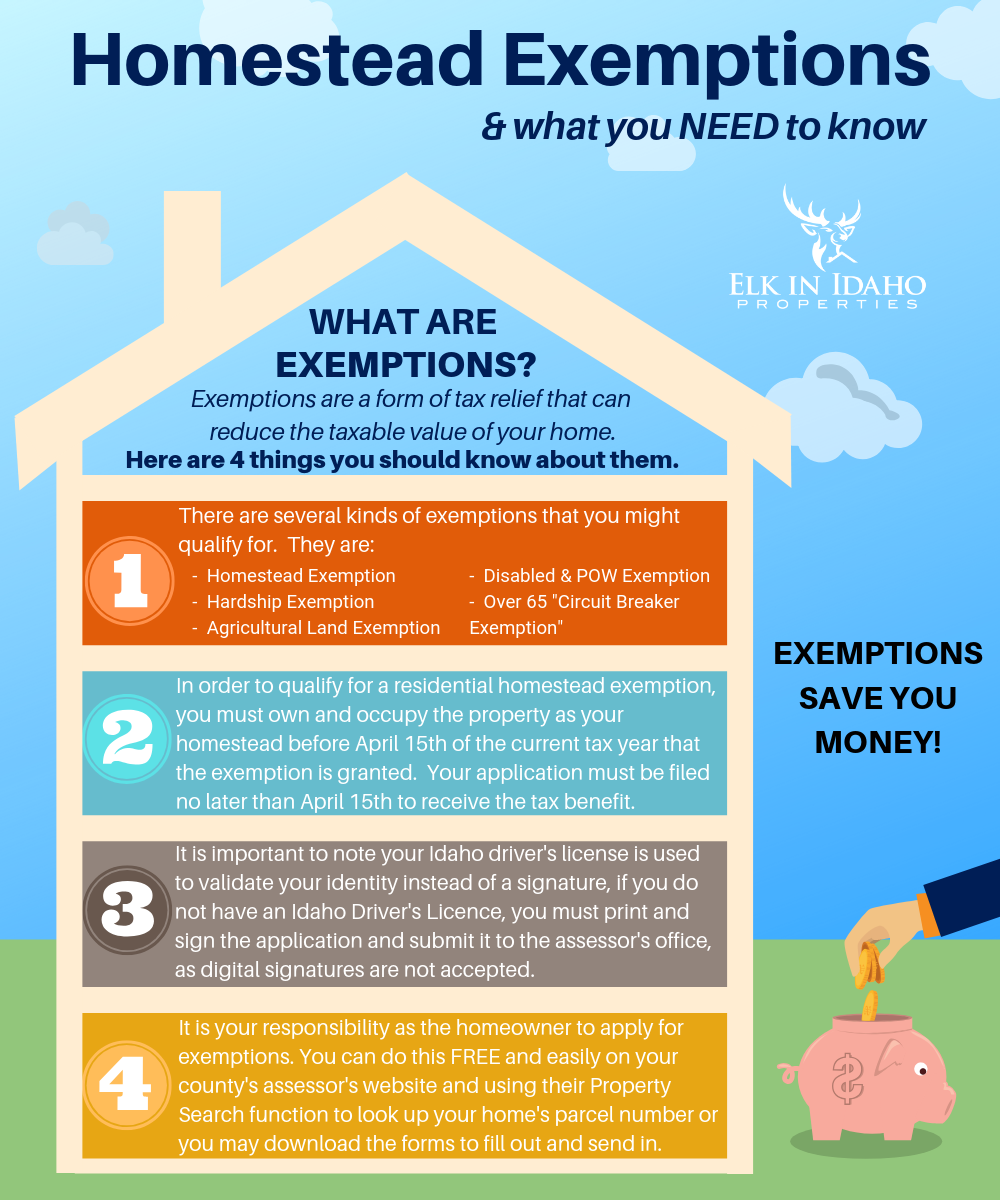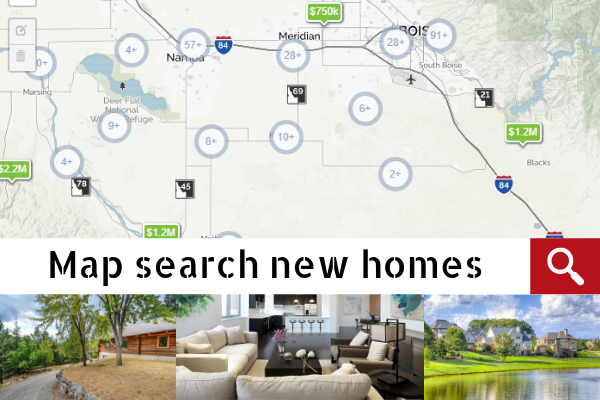What is an Idaho homeowners exemption
Homeowners exemptions for your homestead
You may start picturing pioneers out on the prairie when you hear the word "homestead", however for the purposes of legal reasons, a homestead is simply a property owner's primary residence. The term homestead exemption also refers to tax exemptions a homeowner can claim on his property. Another reference can be to a homestead protection, which protects a person's primary residence in the case of a financial hardship, like an unexpected death of a spouse.
For example, a widow or widower could be faced with higher bills than he or she can afford to pay, and selling the home may seem like the only option. Others facing overwhelming debt may decide to file bankruptcy. Fortunately, there is a way to protect your primary homestead from creditors if you have this kind of financial hardship.
Can I get an exemption on my vacation home?
Homeowners’ or Homestead exemptions work may differ by state, but it is always used for a person’s primary residence. You can’t declare a homestead exemption on a vacation house or other investment property. However, your primary residence does not have to be a single family traditional home to qualify. In most Idaho jurisdictions; condos, townhouses, mobile homes, individual units of multi-family dwellings and co-ops are eligible, as long as they are the owner’s
primary home. Homeowners’ exemptions are not available to renters or owners of unoccupied homes. The home must be titled in the name of the homeowner resident and not in the name of your business entity, like an LLC or corporation.
Homeowners’ or Homestead exemptions work may differ by state, but it is always used for a person’s primary residence. You can’t declare a homestead exemption on a vacation house or other investment property. However, your primary residence does not have to be a single family traditional home to qualify. In most Idaho jurisdictions; condos, townhouses, mobile homes, individual units of multi-family dwellings and co-ops are eligible, as long as they are the owner’s primary home. Homeowners’ exemptions are not available to renters or owners of unoccupied homes. The home must be titled in the name of the homeowner resident and not in the name of your business entity, like an LLC or corporation.
How the Idaho Homeowners' Exemption Works
A homeowners’ exemption does not cut your property taxes directly. Instead, it exempts a certain amount of the property’s assessed value, so you'll pay taxes based on that lower rate, instead of receiving some sort of rebate. If your house is assessed at $250,000 and the exemption is 50 percent, you will pay property taxes as if your home was assessed at $125,000.
Facts about Idaho's Homeowners' exemptions
Planning on Attending an Open House this Weekend??
Get your free list of all homes having an Open House this weekend in the entire Treasure Valley area! Including photos, times, dates and full details!
How do I apply for the Idaho Homeowners Exemption
An application may be filed any time after you purchase your home, move in and make the home your primary residence.
Canyon County applications are not available online, or at the title company, but after the deed has been recorded and in the assessor's system you can request to have one mailed to your primary home in which you are applying.
Mail in your completed homeowner’s exemption application and the Assessor's office will sign the approved application and mail a copy back to you. This copy is sometimes referred to as the receipt. Keep your receipt in a safe place for as long as you own the home. Applicants should not assume they have a homeowner’s exemption until they have received this receipt.
To file in person, you can bring your paperwork given to you at closing (which should include a copy of the deed).
If you would like to know if a home currently has a homeowners exemption or would like to request an application you may contact us at assessordept@canyonco.org.
Ada County you can get an application by emailing the county assessor's office or the assessor's office at (208) 287-7200. Forms are also available to download from their website on the Documents and Forms page or complete it online Homeowner’s Exemption application.
The online application requires your parcel number; to locate this information use their Property Search link. Your Idaho driver’s license is used to validate your identity instead of a signature, if you do not have an Idaho Driver’s License you will have to print and sign the application and scan and email, fax or mail your application to the assessor’s office.
Note: ONLINE SUBMISSION RECEIPTS ARE NOT PROOF THAT YOUR APPLICATION HAS BEEN APPROVED with Ada County.

If approved, when does my tax savings take effect

For the homeowner’s exemption to take affect for the current year, you will need to apply for the homeowner’s exemption prior to April 15th. Otherwise, the exemption will be scheduled to take affect the following year. If the previous owners had a homeowner’s exemption, and did not apply for a homeowner’s exemption on a different property for that year, the exemption will remain active until the end of that calendar year. However, it is not advisable to depend on gaining the benefit from the previous owner’s exemption. Always apply for your own exemption as soon as you are eligible.
For the homeowner’s exemption to take affect for the current year, you will need to apply for the homeowner’s exemption prior to April 15th. Otherwise, the exemption will be scheduled to take affect the following year. If the previous owners had a homeowner’s exemption, and did not apply for a homeowner’s exemption on a different property for that year, the exemption will remain active until the end of that calendar year. However, it is not advisable to depend on gaining the benefit from the previous owner’s exemption. Always apply for your own exemption as soon as you are eligible.
Many homeowners wait until the last minute to apply for these exemptions. Some fail to qualify because they misunderstand the law’s guidelines and deadlines.
Applying now provides assurance that all supporting documentation was obtained in time. Request receipts for verification that their application was received timely.


